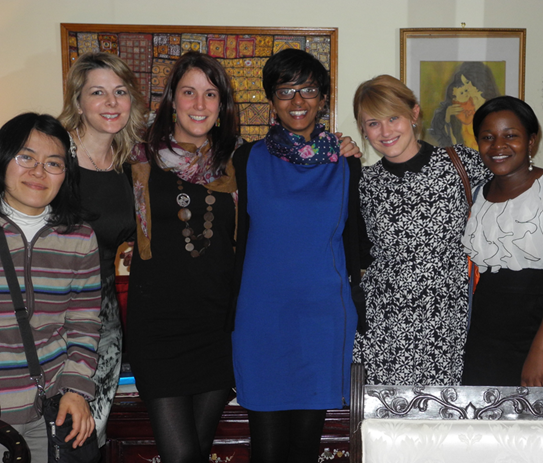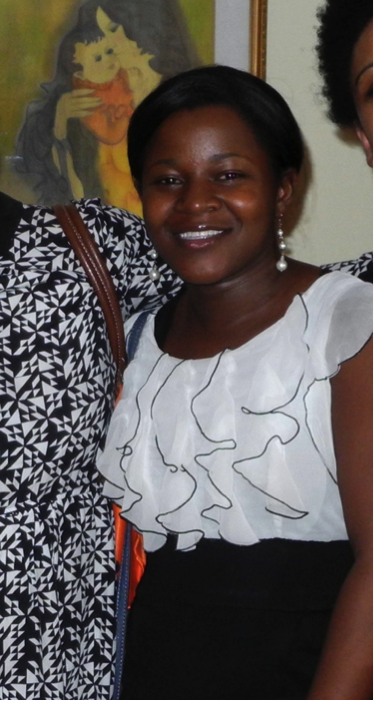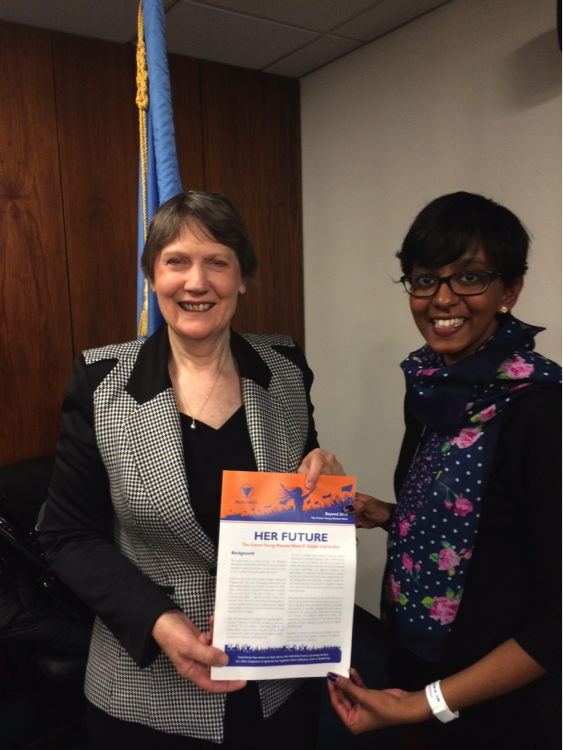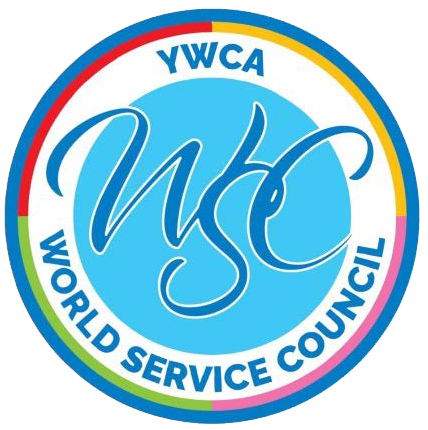 Young women from YWCAs around the world again met and led at the Commission on the Status of Women. The YWCA World Service Council has given on-going financial support for young women’s leadership development programs, including the World YWCA internship program and advocacy programs such as this.
Young women from YWCAs around the world again met and led at the Commission on the Status of Women. The YWCA World Service Council has given on-going financial support for young women’s leadership development programs, including the World YWCA internship program and advocacy programs such as this.
Jill Sen, WSC member and World YWCA representative at the United Nations, interviewed and edited the young women delegates to CSW.
Jill invites you to meet:
Mtisunge Kachingwe, M.D., and president, YWCA Malawi
Nive Sharat Chandran, vice president, YWCA Auckland, New Zealand
Anna Weyher, member of YWCA WSC, USA, and working in Zambia
Sumie Ogasawara, staff member, YWCA Japan
Julia Diprose, member YWCA Canberra, Australia
 Mtisunge Kachingwe
Mtisunge KachingweMtisunge Kachingwe currently sits as the newly elected President of the board for the YWCA of Malawi. She also heads the YWCA of Malawi’s program on sexual and reproductive health and rights of young women, working to ensure that women have accurate information and education on SRHR as well as access to services. Mtisunge is a medical Doctor completing her internship at Queen Elizabeth Central Hospital. Mtisunge’s guiding principle is ‘be the change you want to see in the world’. In her free time she enjoys reading and interacting with people.
Personal background leading to activism within the YWCA movement
My name is Mtisunge Kachingwe I was born and raised in Blantyre, Malawi. My parents died when I was young- my father died when I was four years old and my mother three years later. My Mum’s older sister raised me as her own but in the true sense everyone in my extended family (grandma, aunties, uncles) loved and took care of me and shaped the person I am today.
Growing up had its challenges but I managed to complete secondary school and make it to medical school. Becoming a Doctor was not planned. After secondary school I had no idea what I wanted to do, so my Mum suggested I apply to medical school and I got accepted. Looking back I’m glad I did because I cannot imagine myself doing anything else.
Outside of my own life and surroundings, I never really paid attention to issues affecting the country. Medical school opened up my eyes to issues affecting the world and Malawi. It gave me insight on the hardships women go through in their day-to-day lives. Women make up the majority of guardians in the hospital. It is common to see women finding out they are HIV-positive after having to take care of their husband with an HIV-associated illness, most of which were fatal, and then ending up having to fend for themselves. Many times have I seen rape or gender-based violence victims, the death of women due to unsafe abortions, and maternal deaths due to flaws in the health system. This made me see the difficulties young women face, and the disappointing thing was to see that many women seem to accept this as their life- it is all they know and see. They don’t feel empowered to make decisions on their own, their husbands or uncles decide for them whether to be on oxygen or not, how many children to have, and whether to use contraception or not. I have seen so many examples of the gap between men’s and women’s rights. There were so many occasions where if the woman was empowered and educated, the outcome of her health as well as her children’s would have improved significantly. This is what led me to join the YWCA. I realized that the root cause of these issues resides in community and involves more than the health system, and that if they are to be addressed effectively, a multi-disciplinary approach is needed as well addressing the issues at a community and policy level.
Current role within the YWCA movement
As a member of YWCA Malawi my work has been in the sexual and reproductive health and rights program. I assist in coordinating this program and work towards creating safe spaces for girls to come together and discuss issues that affect them, and I advocate for them to have access to sexual and reproductive health services and sexual rights. Seeing a young woman rise and fight for her right re-enforces my commitment to be a member of the YWCA.
Reflections as a YWCA Delegate to the CSW at the United Nations
Recently I attended the Commission on the Status of Women at the United Nations. I had applied for a long-term internship at the World YWCA. I didn’t get selected for that post but was then selected for a short-term internship. As a short-term Intern I was in the Programs Department. CSW was a new experience for me. I had to step out of my comfort zone, never having had been out of Africa or an international conference, and I had to rise to all the challenges CSW offered. At CSW I spoke on several panels addressing issues to do with young women’s leadership, adolescent SRHR, and faith and cultural barriers of young women accessing SRHR services. In addition to this I worked with the advocacy team in lobbying governments for actions that protect the dignity and rights of young women and girls.
At CSW I interacted with people from different countries and learned a lot, but the one thing I took back home with me were the words of UN Women Executive Director Phumzile Mlambo-Ngcuka when she said, ”The time for baby steps are over, we should aim High and put women and girls at the centre of development”. This statement rings true to me. As the MDG’s come to end, now more than ever, young women need to be mobilised and their meaningful participation ensured in decisions that impact their lives at all levels and in all sectors.
The future of the YWCA Malawi and its relationship within the World YWCA movement
My vision for the YWCA Malawi is to see it expand, to create programs that are sustainable, and to engage our national government more to make them accountable. Having learned from other YWCAs that a system of hostels helps create a consistent source of income for their activities and projects, it is my hope to do the same for my national YWCA.
 Nive Sharat Chandran
Nive Sharat Chandran
Nive Sharat Chandran was elected to the Auckland YWCA Board of Directors in 2011 and a year later she was chosen as its Vice-President. Nive’s passion is the empowerment of women, young people and children especially marginalised population groups including migrant and refugee populations. She was also a finalist in the emerging leader category for the Westpac’s Women of Influence Awards 2013 held in New Zealand. Fluent in both Tamil and English, Nive has recently finished her contract as the youth advocate for Shakti. Shakti is an international NGO (based in New Zealand) that specializes in the area of women’s development, empowerment and domestic/family violence intervention, prevention and awareness with a particular focus on communities from Asian, African and Middle Eastern origin. During her free time, Nive loves to hang out with her friends, go to the beach, shop and dance!
Personal background and influences that led to involvement with the YWCA movement
I was born in Chennai, India and at the age of ten migrated to Aotearoa/New Zealand with my single mother and older brother. Having grown up in New Zealand, I have a unique perspective on life and bring a diversity of opinion to everything I do. This is largely because as a young Indian woman, I bring in my culture and heritage. My mother is also a huge influence in my life because she migrated my brother and I to a country in the middle of nowhere with no family or friends to support her. She worked long hours and often several jobs to ensure we had a good upbringing. Therefore, for me being in the women’s empowerment area was a no-brainer!
I was lucky enough to be chosen for the Future Leaders programme run by the Auckland YWCA back in 2005. Future Leaders is a four-year intensive mentoring programme designed to build young women’s leadership in the Auckland region. I gained a lot from the programme and wanted to give back to the organisation in some capacity. Following which I gained a scholarship to sit as an ex-officio member on the board for a year. I really enjoyed being part of the governance leadership of the organisation so I ran for a board position the following year. I was elected onto the board in 2010 and a year later was elected as the Vice-President of the Auckland YWCA, a role which I have held to date. Once the YWCA gets into your blood, you will be a Y woman your whole life!
Reflections as a YWCA Delegate to the CSW at the United Nations
I became a World YWCA Delegate at the UN CSW58 through the short-term internship programme run by the World YWCA. Through this experience, I was able to understand the critical role the World YWCA plays at international commissions such as CSW and why our role is vital. My passion for the global movement has also been re-charged. I will take my learning back to my national YWCA (YWCA of Aotearoa/NZ) and ensure that we lobby to get a young woman on the government delegation next year. Most of all, it’s the friendships and sisterhoods that I have developed during the 2 and a half weeks that I will hold dear to my heart!
The future of the World YWCA movement
My long-term vision for the World YWCA is that it plays a stronger role in international forums and becomes a much more sought-after international NGO whereby governments and other organisations come to us for guidance on particular areas such as young women’s leadership.
